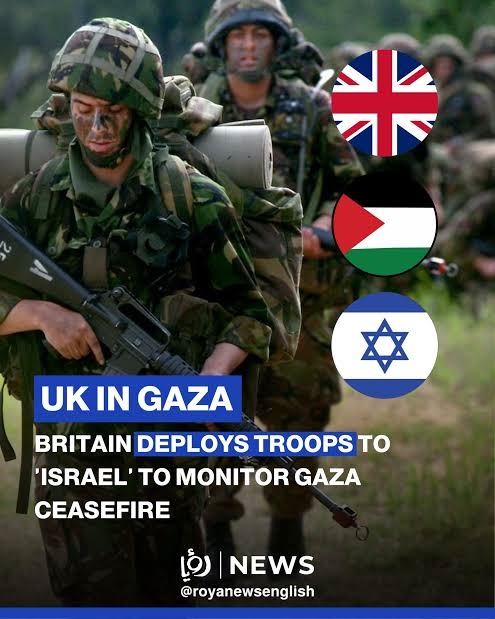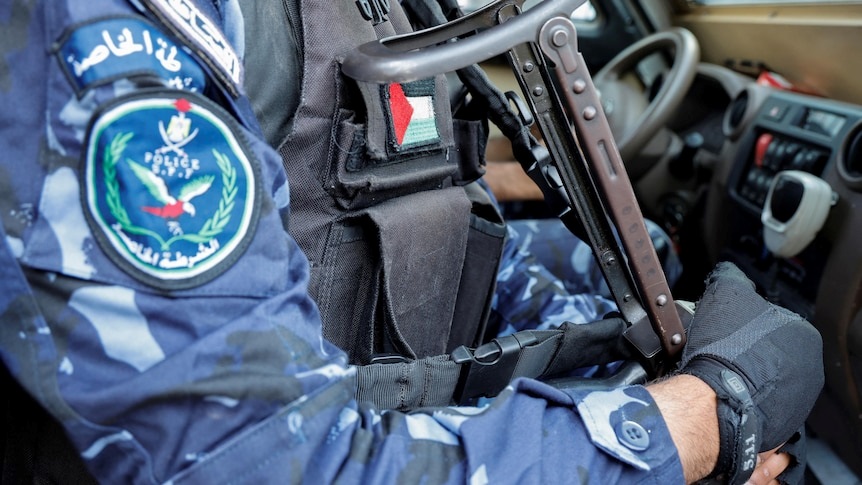
President Trump’s 20-point plan, which led to an Israel-Hamas cease-fire and an exchange of hostages for prisoners and detainees, envisioned the immediate deployment of a “temporary International Stabilization Force” in Gaza. The idea was for the international corps to secure areas where Israeli troops have withdrawn, prevent munitions from entering the territory, facilitate the distribution of aid and train a Palestinian police force.
The creation and deployment of an international force in Gaza could determine whether the current cease-fire has a chance to evolve into a lasting agreement, and whether Israelis and Palestinians move toward the broader aim of a durable peace.
British Defence Secretary John Healey told a London audience on Monday that UK forces could play an "anchor role" by contributing their "specialist experience and skills" to securing a long-term peace.
Britain has sent a senior commander and a small number of troops to Israel to help international efforts to monitor a fragile Gaza ceasefire following an American request.
John Healey, the defence secretary, revealed the deployment barely a week after Yvette Cooper, the new foreign secretary, said the UK had "no plans" to send soldiers.
The British Major General will work as the deputy to a US commander, who is tasked with running a civil-military coordination centre that is also expected to include troops from Egypt, Qatar, Turkey, and the United Arab Emirates.
The ceasefire deal, brokered by Donald Trump, between Hamas and Israel has created the "opportunity for a long-term peace", Mr Healey said.
"We have specialist experience and skills that we have offered to contribute," he said, answering questions after delivering a lecture on wider defence issues to business leaders at an event in London on Monday evening.
The defence secretary said: "We can contribute to the monitoring of the ceasefire. That is likely to be led by others.
"We have also, in response to the American request, put a first rate two-star officer into a civilian-military command, as the deputy commander.
 “The International Stabilisation” will support vetted Palestinian police forces.
“The International Stabilisation” will support vetted Palestinian police forces.
Photo: Reuters
The Trump peace plan calls for an international security force in the Gaza Strip, but countries that might send troops are wary of danger, an unclear mission and being seen as occupiers, ‘The New York Times’ notes.
Diplomats and other officials from several countries who are familiar with the situation say there has been little progress on when the force might be assembled because of confusion over the force’s mission, which appears to be the most serious stumbling block.
Representatives from several countries seen as likely participants have said privately that they will not commit troops until there is more clarity about what the force will be expected to do once it arrives in Gaza, according to two diplomats briefed on the discussions in recent days.
Their main concern is that their troops should not be expected to fight Hamas militants, some of whom remain heavily armed, on Israel’s behalf. For several of the countries, that prospect alone would be reason enough to back out, the officials said.
Some of the countries have also indicated in private discussions that they do not want their troops to be in the centers of Gaza’s cities, because of the danger posed there by Hamas and its tunnel networks, according to discussions with people familiar with the talks.
All of the people spoke on condition of anonymity, and insisted that the reluctant countries not be identified, to discuss the sensitive discussions.
Recent discussions have included Indonesia, Egypt, Turkey and Azerbaijan, according to two diplomats.
Mediators who negotiated the current cease-fire are eager to get an international force into Gaza quickly to stabilize the area before Hamas consolidates its power in the roughly half of Gaza that Israel has ceded so far.
Uncertainty about who would be responsible for security in Gaza could leave parts of the enclave without any military presence to counter Hamas for weeks, if not months. The situation has produced some difficult contradictions as diplomats try to move forward with plans for the region.
Analysts say Arab states would be unlikely to deploy soldiers in Gaza if they feared they could be drawn into clashes with armed Hamas gunmen resisting their presence, and also if their participation was not connected to a pathway to Palestinian statehood — which Israel’s government opposes.
“Getting militarily involved in Gaza is politically risky for Arab countries,” said Ghaith al-Omari, an expert on Palestinian affairs and a senior fellow at the Washington Institute for Near East Policy, a Middle East-focused think tank in Washington. “They don’t want to come in and be seen as doing Israel’s dirty work. So they need a Palestinian invitation and the U.N. Security Council mandate.”
He added, “They also don’t want their contribution to be merely coming to secure a cease-fire that doesn’t lead to ending the Israeli occupation.”
Much depends, however, on whether Hamas gives up its weapons — which its leaders have been reluctant to do thus far.
read more in our Telegram-channel https://t.me/The_International_Affairs

 11:31 23.10.2025 •
11:31 23.10.2025 •






















